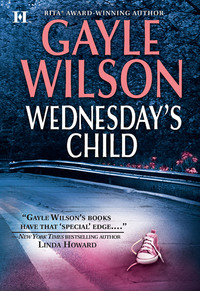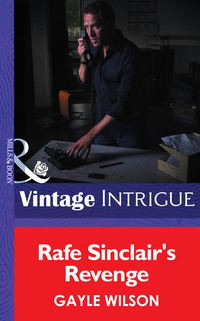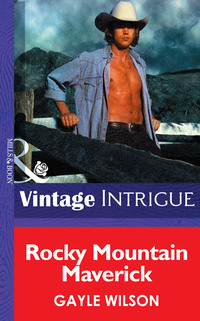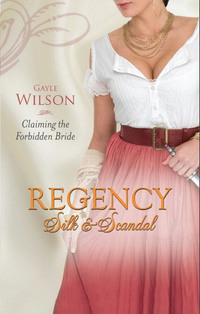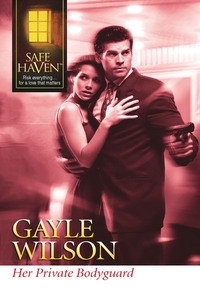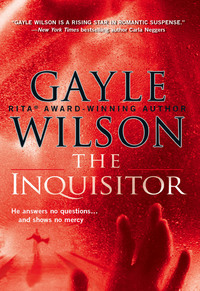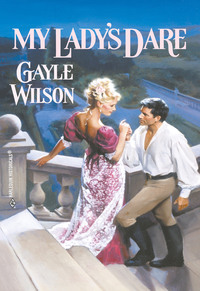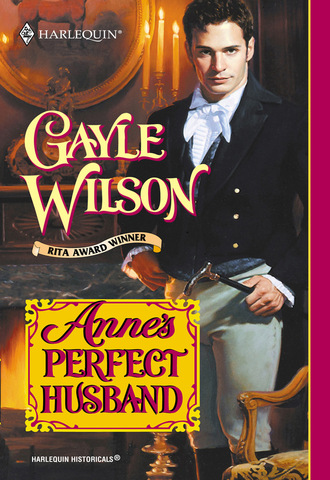
Полная версия
Anne's Perfect Husband

“You don’t need me to fight your battles,” he said
“Well, it would be nice to have someone fight them.” Anne was accustomed to having to stand on her own two feet. However, what she had just said was something she had recognized since Ian had come to Fenton School to collect her. It was nice to have someone on her side. And at her side.
“And that is the purpose of everything we’re in London to accomplish,” Ian said softly.
The marriage mart. Someone to fight my battles for me.
Anne had never thought of what they were undertaking in that light. Despite all her romantic fantasies, she had never really believed she would find a husband at any of the Season’s entertainments.
She had already found her champion and, ridiculously romantic or not, she knew she would never want any other…!
Praise for RITA Award winner Gayle Wilson
My Lady’s Dare
“…three-dimensional characters and intriguing
plot twists kept this reader glued to the pages.”
—Romantic Times Magazine
Lady Sarah’s Son
“…a moving tale of love overcoming great obstacles,
of promises kept and trust restored.”
—Romantic Times Magazine
Honor’s Bride
“A superbly crafted story…”
—Romantic Times Magazine
The Heart’s Wager
“This is the well-written, well-plotted, gripping book
that we’re always hoping for and don’t always find.
I give it my highest accolades.”
—Rendezvous
Anne’s Perfect Husband
Harlequin Historical #552
#551 THE HIGHLAND WIFE
Lyn Stone
#553 LONGSHADOW’S WOMAN
Bronwyn Williams
#554 LILY GETS HER MAN
Charlene Sands
Anne’s Perfect Husband
Gayle Wilson

www.millsandboon.co.uk
MILLS & BOON
Before you start reading, why not sign up?
Thank you for downloading this Mills & Boon book. If you want to hear about exclusive discounts, special offers and competitions, sign up to our email newsletter today!
SIGN ME UP!
Or simply visit
signup.millsandboon.co.uk
Mills & Boon emails are completely free to receive and you can unsubscribe at any time via the link in any email we send you.
Available from Harlequin Historicals and GAYLE WILSON
†The Heart’s Desire #211
†The Heart’s Wager #263
†The Gambler’s Heart #299
Raven’s Vow #349
His Secret Duchess #393
Honor’s Bride #432
Lady Sarah’s Son #483
My Lady’s Dare #516
*Anne’s Perfect Husband #552
Other works include:
Harlequin Intrigue
Echoes in the Dark #344
Only a Whisper #376
The Redemption of Deke Summers #414
Heart of the Night #442
**Ransom My Heart #461
**Whisper My Love #466
**Remember My Touch #469
Never Let Her Go #490
‡The Bride’s Protector #509
‡The Stranger She Knew #513
‡Her Baby, His Secret #517
Each Precious Hour #541
††Her Private Bodyguard #561
††Renegade Heart #578
††Midnight Remembered #591
*The Sinclair Brides
**Home to Texas series
†Hearts Trilogy series
‡Men of Mystery series
††More Men of Mystery series
For Alynn, whose beautiful name might be suitable
for a medieval heroine, but not, alas, for a Regency one.
Although its heroine is named Anne, this story
is still for you, along with my love and admiration.
Hope you enjoy!
Contents
Prologue
Chapter One
Chapter Two
Chapter Three
Chapter Four
Chapter Five
Chapter Six
Chapter Seven
Chapter Eight
Chapter Nine
Chapter Ten
Chapter Eleven
Chapter Twelve
Chapter Thirteen
Chapter Fourteen
Chapter Fifteen
Chapter Sixteen
Chapter Seventeen
Prologue
Sinclair Hall
England, December 1813
“Oh, there’s no mistake, Mr. Sinclair. We’ve examined the terms of the colonel’s will quite carefully, I can assure you. It’s very clear he intended to leave his daughter in your very capable hands.”
The well-shaped lips of Ian Sinclair, former major with His Majesty’s forces in Portugal, tightened to prevent another expression of disbelief. It was possible, he supposed, that George Darlington had named him as his daughter’s guardian. That was almost as easy to believe as the fact that Darlington had fathered a daughter.
“And the child?” Ian asked.
After all, she should be his first concern. The little girl had lost her father, the only parent she had ever known. Of course, knowing Darlington’s history, Ian wondered exactly how often the child could have even seen him, much less how well she had known him.
“She is in a very fine school in the north. The location is a bit remote, but I believe the family has ties to the region.”
“And relations there perhaps?” Ian asked, feeling the first dawn of hope since he had begun this interview with George Darlington’s solicitor, who had come from London to apprise Ian of the terms of his late client’s will.
“Not to my knowledge. Of course, you may know more of the family’s connections than we are privy to.”
“Actually, I knew very little about Colonel Darlington,” Ian said. “Other than his military endeavors, of course.”
“Comrades in arms,” the solicitor said heartily.
Ian thought how far from the reality of his and Darlington’s relationship that phrase fell, but he said nothing. Whatever the colonel’s failings as an officer, and in Ian’s opinion they were many, he would not speak ill of the dead.
Not even ill of a man who had, without warning, saddled him with a child Ian had never even met. A child whose very existence he had been unaware of until this afternoon.
“Well,” the solicitor said, his tone verging on euphoric, “I have taken up quite enough of your time. And I believe that all of the particulars have now been taken care of to everyone’s satisfaction.”
Ian wondered if the man were really that obtuse, or if he were simply relieved that he hadn’t been shown the door when he’d revealed the reason for his visit. In truth, he was probably glad to have this poor child off his hands and someone else’s responsibility.
“Here is the address of the school. I believe the girl’s fees are paid through the end of term.”
“Which should be soon,” Ian realized, reaching to take the neatly lettered paper from the lawyer’s hand. “IfI remember my own school days correctly. And I confess, those ended long enough ago that the details are beginning to blur. I do remember being at home for Christmas.”
The solicitor’s thin lips pursed briefly before he said, “No doubt your memory is excellent, Mr. Sinclair.”
Underlying that quite unexceptional statement had been some nuance of tone Ian couldn’t read. He studied the man’s rather pasty face, trying to decide what had bothered him about it.
“If there are no relations,” Ian asked, “then where has this child spent holidays during the years her father has been posted abroad?”
“As far as I’m aware, Mr. Sinclair, she has remained at school. There are always a few who do, you know. For one reason or another.”
That had been true enough of his own school, Ian remembered. He had a memory of two or three winter-pale faces pressed against the front windows, watching as their fellow students departed to be conveyed home through the snow-shrouded English landscape.
“I see,” Ian said, thinking also about the boisterous excitement of those long-ago Sinclair Christmases. And thinking, despite himself, of a lonely little girl who had perhaps never known a real country Yuletide. At least not in the last few war-torn years of her existence.
“Oh, don’t bother to see me out,” Darlington’s representative said cheerfully as Ian began to push himself out of his chair. “I understand that you’re still recovering from your wounds, and I certainly have no desire—”
The solicitor’s voice stopped in midsentence. That was undoubtedly the result of the same look Ian had once successfully employed to correct any breach of military discipline among his troops.
It involved a leveling at his intended victim of what he had always considered to be quite unremarkable hazel eyes. He was surprised to find the look apparently as effective as it had always been with his subordinates, despite the fact that he hadn’t had cause to use it in more than a year.
Totally ignoring the solicitor’s broken sentence, Ian said pleasantly, “I shall be delighted to see you out.”
The day had been both wet and bitterly cold, with the threat of snow hovering in the dark, overcast December sky since dawn. Weather such as this always made the lingering effects of his injuries more pronounced, but Ian ignored them as much as he possibly could. As did his staff and his family, of course.
That was a lesson both had learned early in his convalescence. He could hardly blame his visitor, however, for not being aware of his sensitivity to any reference to his health.
“Are you certain I can’t convince you to postpone your return?” Ian continued, leading the way toward the door. “I should hate to think of you benighted on the road.”
“No, indeed, Mr. Sinclair, although I thank you for your kind offer of hospitality.”
“Then I shall wish you Godspeed, Mr. Smythe. And a safe journey home.”
When they reached the hall, Ian watched as his butler helped his visitor into his greatcoat. Mr. Smythe then placed his tall beaver over sparse, iron-gray hair. He ducked his shoulder almost defensively when the wide front doors were opened, letting in the sharp, wet chill of the December wind.
“Not a fit day for man nor beast,” Williams said, closing the door very quickly behind his master’s departing guest.
“I tried to persuade him to stay the night, but he was eager to be off.”
“Perhaps he has holiday entertainments awaiting him in London,” the butler said. “Anxious to get back to his family, no doubt.”
“No doubt,” Ian echoed, thinking that this would be the first Christmas he had spent at home without any member of his own family with whom to celebrate.
The youngest Sinclair brother was still with Wellington, fighting the French on the Iberian Peninsula. And having spent three years in those same circumstances, Ian knew exactly how Sebastian would keep Christmas.
There would be wine, if the Beau could possibly manage to procure it. And perhaps a couple of scrawny chickens, stewed until they were almost edible. After dinner, the officers would gather around the fireplace of whatever building Wellington had commandeered as his headquarters to sing carols. They would probably be forced to wear their woolen uniform capes against the damp that relentlessly seeped in through the stones and chilled to the bone.
Ian realized that in remembering those deprivations he was smiling. The warmth of the camaraderie those men shared would help them endure. And at least Sebastian wouldn’t be spending Christmas alone.
Nor would Val, of course. Ian’s smile widened, although he refused to allow himself to imagine exactly how his older brother would be engaged during this holiday season. Ensconced in the Sinclair hunting lodge, Dare and his countess seemed determined to stretch their honeymoon to the full year such milestones had once encompassed.
And Ian would be the last person to begrudge his brother that newfound happiness. Dare had more than earned it in his behind-the-scenes efforts to defeat that same enemy Ian and Sebastian had fought by more conventional means.
Still, he thought, limping back to the welcome blaze of the library fire, it would be a lonely Christmas here. And unbidden came the nearly forgotten image of those small, pale faces pressed longingly against the windows of Harrow so long ago. A damnably lonely Christmas.
Chapter One
“I beg your pardon,” Anne Darlington said, finally looking up from where she was kneeling on the stone floor, her hands full of the grimy edge of Sally Eddington’s woolen petticoat.
She was stitching up the hem of the offending garment so that it wouldn’t drag on the ground as the child walked. Her concentration on the task, which she was attempting to perform while six-year-old Sally was still wearing the petticoat, had prevented her from hearing the first part of the message the headmistress had sent.
“It’s your guardian,” Margaret Rhodes said importantly. “Come to take you home for Christmas.”
“How nice for you, Sally,” Anne said. She took one very large and hurried stitch and then looped the needle through and tied a quick knot. She broke the thread with her teeth before she added, “I didn’t know you were leaving today.”
In all honesty she hadn’t even known Sally had a guardian. Anne distinctly remembered that the little girl had spent the previous holiday at school. There were only a handful of students who did that, and since Anne herself had always been one of them, she certainly knew who the others were. And most of their stories as well.
The loss of a mother, usually in childbirth with the next, too quickly conceived baby. A father’s remarriage, perhaps. Or his disinterest.
Anne supposed she herself might fall into that latter category, but her father’s disinterest was something she had stopped thinking about a long time ago. She was actually grateful for the upbringing he had provided her, even if it had never included his presence. And just this week Mrs. Kemp had offered her a teaching position here for the next school year.
Then she would never have to leave, Anne thought contentedly, automatically straightening Sally’s skirt and smoothing with her hands the carrot-colored frizz that surrounded the little girl’s freckled face.
“But I’m not,” Sally said, her eyes round at the thought.
“Not her, you big silly,” Margaret said. “It’s you he’s come for.”
Anne turned her head, looking full at Margaret for the first time. “For me?” she repeated in astonishment.
“And Mrs. Kemp says you mustn’t keep him waiting.”
Anne opened her mouth to protest, and then closed it again. After all, whatever was going on, it offered to be different from her normal afternoon routine of wiping noses and hearing lessons.
Either the girls were having a joke or there had been some mistake in who had been called for. In either case, going along would prove more entertaining than what she was presently doing. If it were a prank, then the others would enjoy a laugh at her expense, nothing she was averse to. And if it weren’t, the mistake would probably have been straightened out by the time she reached the headmistress’s office. Until then…
“Well, of course, I won’t keep him waiting,” Anne said cheerfully. “Come from London, I suppose.”
“I don’t know about that,” Margaret confided, “but he arrived in a bang-up rig with four of the primest bits of horseflesh I’ve ever seen.”
“If Mrs. Kemp hears you talking like that, my girl,” Anne warned, “you’ll be the banged-up rig.”
She lightened the rebuke with a smile and then ran down the wide hallway with the younger girl at her heels. Not setting a good example, Mrs. Kemp would have said, especially for someone about to become a teacher.
Since the headmistress wasn’t by to say it, however, Anne didn’t see any reason not to run off the excess energy the recent weather’s confinement had produced. She would be so glad when spring arrived and the woods and fields were again available for roaming.
She slowed to a sedate walk as she neared the open door of the school’s office. Working by feel, she tucked a few tendrils of hair back into the neat coil from which they had managed to escape and straightened the shoulders of her linsey-woolsey dress, brushing her hands over the bodice. Then she cast a quick glance behind her to evaluate Margaret’s appearance, knowing that in Mrs. Kemp’s opinion it, too, could usually be improved upon.
She was right. The younger girl’s flannel pinafore was unbuttoned. Anne turned and, still walking backwards, attempted a couple of quick adjustments to the ten-year-old’s attire.
Margaret’s widening eyes should have been a warning, but she didn’t notice them until it was too late. Anne backed into something quite solid and heard a soft gasp of response.
Someone, she realized belatedly when she whirled around. Someone very tall. And dressed in what even such a provincial as she knew to be the height of fashion, from his gleaming tasseled Hessians to the broad shoulders of an expertly cut coat of navy superfine. Considering the weather, there would no doubt be a multicaped greatcoat and a tall beaver hat residing safely in Mrs. Kemp’s office.
“Oh, dear,” she said. “I hope I didn’t hurt you.”
He certainly appeared sturdy enough that she couldn’t possibly have done him damage, but that gasp had sounded pained. And there was something in the tightness of the lines around that beautifully shaped mouth that also spoke of discomfort.
It was not until the mouth tilted, destroying that ridiculous notion that Anne looked up and found his eyes. They were hazel, and they were smiling as openly as were his lips.
Smiling eyes. She had read the phrase once in a novel, that strictly forbidden pastime carefully concealed from Mrs. Kemp, of course. She had never quite known what it meant until today. Until now. And her heart began to beat a little irregularly.
“I believe I have managed to survive your charge,” he said. “It is customary to look in the direction you’re treading, however. Just to prevent bowling over the un-suspecting.”
Anne laughed. “Only think how boring it should be to always look where one is going. I confess that I much prefer to back my way through life.” She longed to add, “One meets such interesting people that way,” but she couldn’t decide if that would sound sophisticated or simply fast.
And while she was trying to resolve that dilemma, the hazel eyes left her face and settled, still smiling, on Margaret’s. Anne swallowed her disappointment and turned to look at her young friend as well. Margaret’s brown eyes were still stretched. Indeed, they had widened enough to be outright rude as she stared, openmouthed, at the visitor.
“Hello,” he said.
“’Lo,” Margaret mumbled.
The self-important air of confidence with which she had delivered her message had disappeared. Of course, Anne could hardly blame her for that. They were neither very often exposed to someone who was so obviously Top of the Trees.
“I’m not quite sure how this should be done,” the elegant gentleman was saying, “but I have satisfied Mrs. Kemp as to my identity and my legal position as your guardian. She has agreed that we may leave as soon as you’re ready. Since I gave you no warning, I should imagine it will take you some time to pack. I hope you will make as quick a work of that as you can, however, because the weather is worsening by the moment.”
Margaret said nothing, her eyes and mouth continuing to gape unbecomingly as he talked. When he had finished, and the silence yawned empty for a few seconds, she reluctantly pulled her gaze away from his face to look at Anne.
“It’s not me you want,” she said, pointing a trembling finger. “It’s her. That’s Anne Darlington.”
The hazel eyes followed the gesture, and as Anne’s met them, she realized they were no longer smiling. They had widened as much as Margaret’s, and even that was attractive, she decided.
“You’re Anne Darlington?” he asked, his shock evident.
No mistake about the name, then, Anne thought, trying to make sense of this.
“I am,” she said, inclining her head in agreement, hoping to add a touch of dignity to the confession.
“Colonel George Darlington’s daughter?”
“Did you know my father, sir?” she asked.
Again there was a small silence.
“I served with your father in Iberia, ma’am. May I offer my condolences on your recent loss.”
Anne had never in her life been called ma’am. It was rather shocking, but despite that, finally she was beginning to have a glimmer of understanding. Perhaps this man was indeed her guardian. Perhaps when she was much younger, her father had named a military friend to look after her if anything happened to him. And now that it had…
“Thank you,” she said softly.
She supposed she had grieved in the abstract for her father, but since she had not seen him in over seven years, and not very often before that, she had quickly recovered from the news of his death, about which she had been informed only two months ago.
“My name is Ian Sinclair, and your father’s will asked me to serve as your guardian.”
How strange, Anne thought. Not “your father asked me,” which is what she would have expected, but “your father’s will.”
“And you agreed?”
“Colonel Darlington was a…comrade in arms.”
Anne wondered about that brief hesitation, but then she knew less than nothing about military matters. Apparently her father had chosen from among his acquaintances a man he felt would be trustworthy to look after her.
She wondered how many years ago that decision had been made. And considering Mr. Sinclair’s confusion in thinking Margaret was his ward, she wondered if her father had even remembered how old she was. He had certainly never acknowledged birthdays. In actuality, he had seldom acknowledged her existence.
“As you can see, Mr. Sinclair, I am hardly in need of a guardian,” she said briskly. “I shall be twenty my next birthday, and Mrs. Kemp has very kindly offered me a teaching post here. My father was unaware of the offer, of course, which was made after his death.”
“Then you were in frequent correspondence with your father?”
The hazel eyes were focused intently on her face, and for some reason, Anne found herself compelled to tell him the truth.
“I was not,” she said succinctly.
“I see.”
Even living as she had among the female offspring of parents who obviously did not wish to be burdened with hiring governesses and tutors for them, Anne had finally been forced to admit her father’s total lack of interest in her was unusual. Most of her schoolmates got the occasional letter or present or visit. In all the years she had been at Fenton School, she couldn’t remember receiving any of those things.
“I’m very sorry you have made this journey for nothing,” Anne said. “Especially since, as you say, the weather is uncertain.”
The fine mouth tightened, and again Anne noticed the deeply graven lines that bracketed it. She wondered at his age, but there was something about his face that defied an attempt to judge it, despite the sweep of gray at the temples of his dark chestnut hair. His eyes, when they were smiling, made him seem quite young. Now, however…
“Actually, I have been dreading spending Christmas alone,” he said. And then he smiled at her again.
Anne had not been dreading the holidays. She enjoyed the quieter times they provided. There would be only a few girls left at the school, some of them, like Sally, quite small. Since Anne was the oldest student, and the one who had been here the longest, their Christmas entertainment had always fallen on her shoulders. And she welcomed the task.


